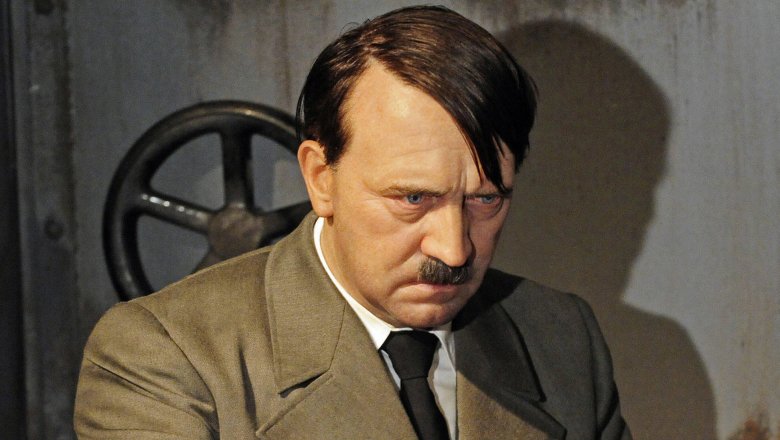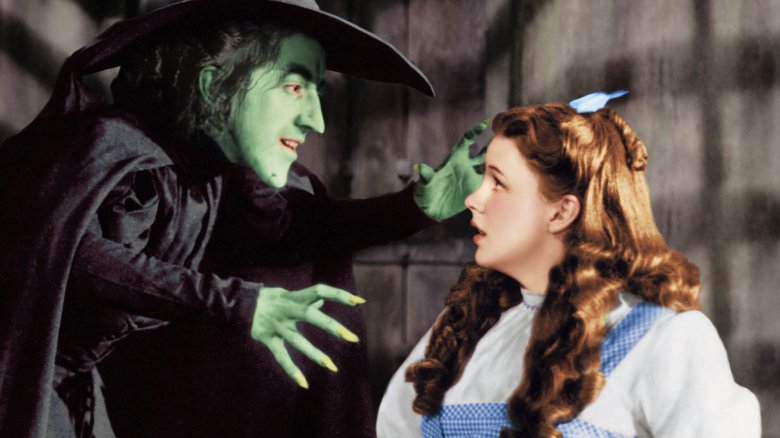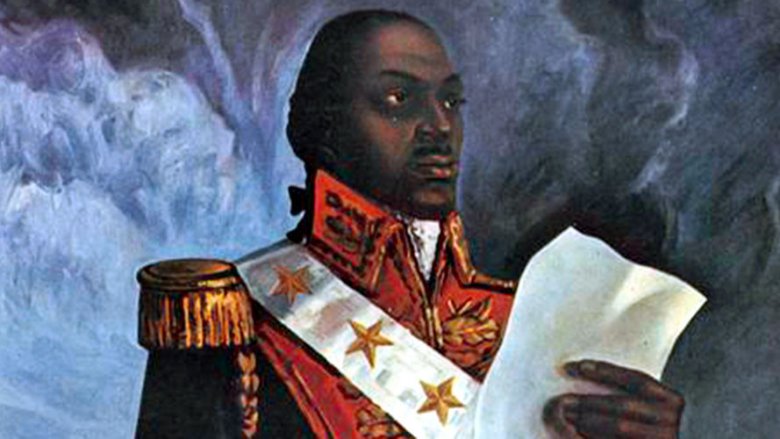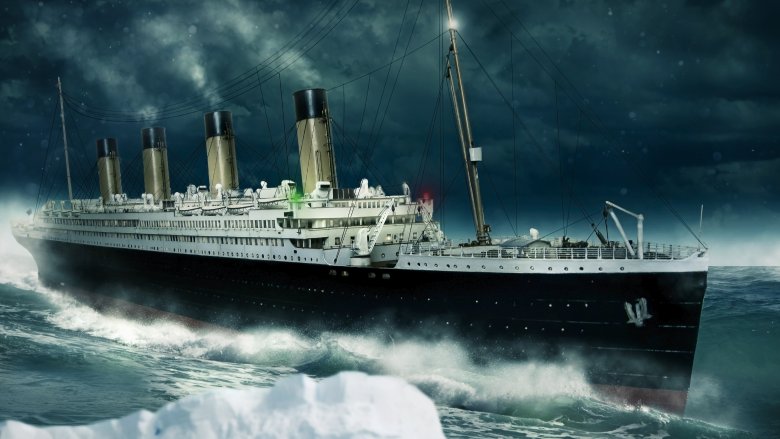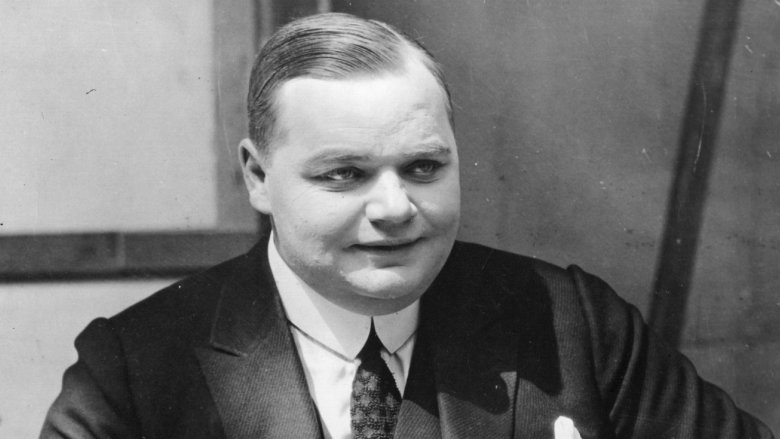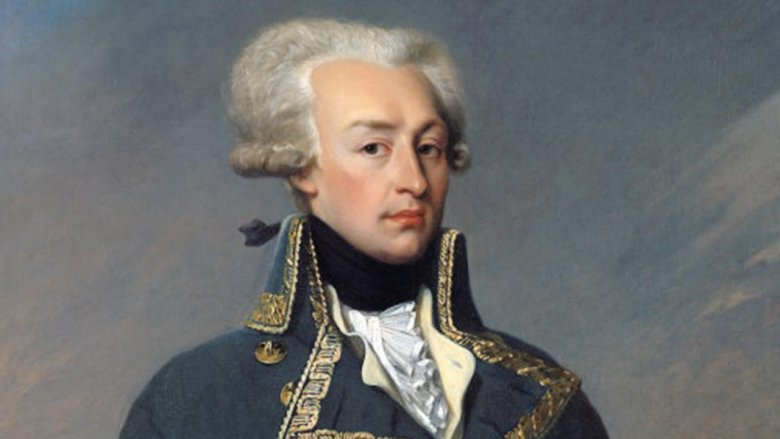Historical Events That Deserve Their Own Movies
There's nothing Hollywood likes quite so much as the words "based on a true story." Inspiring biopics or dramatizations of real wars and battles are still some of the most surefire Oscar bait out there, to the extent that awards season can sometimes feel like it's being sponsored by the History Channel. (You know, the old school History Channel. Not today's "History" Channel.) To just grab a few obvious examples, the last few years have seen everything from 12 Years a Slave to The Theory of Everything to Enigma to Dallas Buyers Club and more. And those are just the good films. There are just as many true story films out there that tank on opening weekend.
Yet, for all the screentime given over to actors pretending to be real, ordinary people (one might almost say, "acting...") there are still hundreds of compelling historical moments that producers have managed to completely ignore. In an era when a single year can produce two separate biopics about someone like Alfred Hitchcock, here are the fascinating events Hollywood should be bringing to the silver screen.
Ona Judge: The Slave Who Escaped George Washington
Picture the scene: It's 1796. A young slave girl named Ona Judge has just slipped from the clutches of her owners and vanished into the American night. There's an underground network that can ferry her toward freedom, but if she's caught, she'll be returned to her master. And Ona would rather die than that. She'd rather die than go back to Mount Vernon. But how can you escape when your owner is ... George Washington?
Did that grab your attention? It's well-known by know-it-alls that George Washington was a slave owner, but it's one of those things most of us like to just pretend was probably not as bad as it totally was. Ona Judge's story says different. Reported in 2017 in the biography Never Caught by Erica Armstrong Dunbar, it reveals that Washington was as callous with his slaves as any other owner, chasing this innocent girl to the ends of the Earth.
From a movie perspective, the story has everything. Not only is it showing us a usually ignored dark side of Washington, it also fits in with recent trends of letting the marginalized of history tell their own stories. According to Hollywood Reporter the book has already been optioned, but no movie yet. Get your act together, Hollywood!
Writing Hitler's Diaries
In 1983, the stupidest news scandal in German history blew up after Stern magazine started publishing what it claimed were the diaries of Adolf Hitler. Secured for the magazine by star reporter Gerd Heidemann for 9 million Deutschmarks (equivalent to "a whole ton of money" in U.S. dollars), they promised to rewrite the history of World War II. Instead, they were exposed as crude fakes barely two weeks after the first extracts were published, all part of an elaborate con by forger Konrad Kujau.
The story itself was big news. But the background? Not so much. The tortured two-year tale is full of delicious ironies and larger-than-life characters. According to the New Yorker, Heidemann was a Nazi-memorabilia fanatic who not only owned Goering's old yacht but was dating Goering's daughter. The "diaries" themselves Kujau copied almost word for word from a popular history book on the Fuhrer. When Stern bought the lot in bulk, Kujau suddenly declared he'd somehow found another 33 volumes, worth millions more. Stern paid for those, too.
In short, the Diaries saga was a real-life farce in which the world's media allowed itself to be hoodwinked by a cheerful lunatic. As jumping-off points for satirical comedies go, that's hard to beat. There's already a German version, but maybe it's time we got an English-language one.
Louis B. Mayer, the Original Weinstein
In the wake of MeToo and the fall of Harvey Weinstein, the world is all too aware of the damage powerful men can wreak in Hollywood (and really, anywhere). So now might be the ideal time to examine the Hollywood predator who started it all. MGM producer Louis B. Mayer was the man behind such hits as The Wizard of Oz. He was also, according to Variety, a bully, a creep and an abusive monster who terrorized actresses.
Now, obviously no one wants to watch a two-hour movie of Louis B. Mayer harassing a string of unhappy women. But one that focuses only on his most messed-up relationship might be illuminating. As Canada's National Post describes, Mayer preyed upon Judy Garland from the moment she appeared in movies. He molested her, threatened her, and controlled everything about her life, from how she dressed to her horrific diet, which at one point consisted of coffee and a mandated 80 cigarettes a day.
Although Judy eventually managed to stand up to Mayer, any movie about their toxic relationship would by necessity be a dark drama. It would also have to be self-reflective. Hollywood allowed men like Weinstein and Mayer to romp around for so long, it'd be good to see a Hollywood movie reckoning with the damage the dream factory has done.
Revolution! The Life of Toussaint L'Ouverture
Toussaint L'Ouverture is the most important leader you've never heard of. A former slave turned general, he freed Haiti from France in history's only successful slave revolt. His life has been crying out for a movie for years. But while the French managed a two-part TV movie in 2012, and Danny Glover spent the 2000s trying to get an English version off the ground funded by — of all people -0 Hugo Chavez (via IndieWire), L'Ouverture's story still has yet to be told by Hollywood.
That's a darn shame because L'Ouverture's life already reads like a cross of 12 Years a Slave and Lawrence of Arabia. A slave born into the French colony of Saint Domingue (now Haiti), he spent his first 50 years in shackles before joining the Haitian revolution as a doctor. There he rose up the ranks until he controlled the largest army of ex-slaves on the island. After defeating the French in bloody combat, he tried to build a society in which whites, freed slaves, and mixed-race people could all live side by side, only to be betrayed by his own generals.
If you're still struggling with this, feel free to read that entire paragraph back, but while imagining someone like Idris Elba in the role. There. That image of stone-cold awesomeness is why this needs to be made into a sweeping epic blockbuster today.
Gregor MacGregor, Catch Me If You Can in the 18th Century
Audiences love movies about charming con men getting away with ridiculous schemes (see: any movie with Ocean's in the title). For that reason alone, the life of Gregor MacGregor demands the movie treatment. A fraudster who lived in the early 18th century, MacGregor's life was so dedicated to swindling that his entire existence became a long-running con.
According to Revolutions podcast, MacGregor managed at only 16 to blag his way into Simon Bolivar's revolutionary army. It wasn't until he started abandoning whole units to their fates that the general realized he'd been tricked. Bolivar was so mad at MacGregor that he exiled him under pain of death. Rather than slump off home to Scotland, MacGregor pulled off the biggest fraud in history.
Using drawings, faked maps, and the clout of his rank in Bolivar's army, MacGregor started selling Britons on a fantastic new nation in the Americas named Poyais. It was a Garden of Eden, in need of nothing but some sturdy European settlers. So enamoured were people that MacGregor raised the equivalent of over $3 billion (via BBC). He then vanished, promising to meet the settlers out there. Instead, the settlers found themselves abandoned on the Mosquito Coast, an uninhabitable stretch of Nicaraguan wilderness that is exactly as mosquito-y as it sounds. Sadly, this movie, like life, would not end with MacGregor's comeuppance.
Sinking Hitler's Titanic
In 1941, Joseph Goebbels was worried about Nazi Germany's ability to produce propaganda movies. His multiple versions of the story All Jews Are Evil had failed to gain much traction. So the Nazi minister decided to bet everything on the biggest blockbuster in German history. A retelling of the Titanic, it would beat Hollywood at its own game. Instead, it became a real-life disaster movie (via New York Post).
Goebbels hired a drunken egomaniac named Herbert Selpin as his director. Almost immediately, Selpin began making demands beyond the outrageous. With the Fuhrer backing him, Selpin demanded a scale model of the Titanic built for his crew to sink, then started requisitioning Nazi navy units to act as extras, despite World War II still being underway. The writer was such a fanatical Nazi that he wound up delivering a script so extreme it could be read as a satire. The film turned out so absurd that Goebbels (a Nazi, mind you) refused to release it.
It's easy to imagine a great, quirky Hollywood comedy being made from this material, like the Coens' Hail Caesar! but with darker undertones. The third act would be far more somber than the earlier parts. Selpin ended up being strangled by the SS for his failures, while the Titanic set was turned into a concentration camp. In any story involving the Nazis, there's no avoiding darkness.
The Most Beautiful Game
The Biafran War was one of those unmitigated mid-20th century disasters that it's hard to believe everyone doesn't know about today. As Britannica describes, it kicked off when the Igbo people of eastern Nigeria unilaterally seceded in 1967. What followed was a bitter war in which anywhere between 500,000 and 3 million people died, mostly Igbo children who starved.
Wow. Sounds like a depressing movie pitch, right? Yes and no. Yes in that the Biafran War was one of the most awful conflicts of the century, but no in that there was one moment of humanity amid all that slaughter. In 1969, soccer legend Pele arrived in Nigeria to play a friendly match with his touring club. His popularity was so great that both sides agreed to a ceasefire to watch. For two days, Nigeria's bloodiest conflict was put on hold so enemies could bond over soccer.
It's a true tale that still crops up in most soccer histories, and it's easy to see why. The ability of a game to bring people together and stop a slaughter is the kind of unexpected feelgood angle anyone can get behind. Combine it with a taut script that really digs into what was going on in Pele's head, and you've got yourself a great character study that also doubles as a celebration of sport and life.
Rally 'Round the Pig
War can be absurd. You know the vibe, the sort of thing M*A*S*H and Catch-22 managed to convey. In an era when many world powers seem itching for another war, how about a satirical movie that dramatizes the most absurd war of all? On June 15, 1859, an American on San Juan Island on the U.S.-Canada border shot and killed a British pig that had gotten into his garden. This somehow triggered a chain of events that nearly led to all-out war between Washington and London.
The National Park Service at San Juan has the whole story. At the time, the island was disputed territory claimed by both America and Canada (then still a British colony). About 18 Americans lived alongside a bunch of Canadian Brits, and the two groups hated each other. So when the pig got shot, both sides used it as a pretext to try and start a war. The Pig War culminated in two navies staring each other down, one slip of the trigger away from sparking disaster.
We can all agree that the idea of one dead pig whipping politicians in Washington and London into war frenzy is inherently funny. Put it in the hands of someone like Armando Iannucci, the genius behind political comedies Veep and Death of Stalin, and you'd have a great, absurdist satire of jingoism and drum banging.
We Were the Lebensborn
In the 1930s, the Nazi Party set up a secret breeding program between SS officers and Aryan women. Any "pure" Germanic women could volunteer to be impregnated by an SS officer in return for money. The child would then be whisked away to be raised by the state on Nazi ideologies. It's estimated around 20,000 babies were born from these Lebensborn programs, and get this: A very large number of them didn't find out the truth of their births until the late 20th or early 21st centuries (via BBC's History Extra).
After the war, most of the Lebensborn were put up for adoption with their true identities hidden. Many wound up far afield, living normal lives in countries like Norway and even America. When news of the Lebensborn program made headlines in the late 1990s, it inspired many to start looking into their backgrounds. To their shock, thousands of ordinary people discovered the nasty secret lurking in their pasts.
The Lebensborn story has been told a couple times in German and Czech films. But many of those productions focused on the Nazi era. How about a small, focused film set in, say, 2006, following a regular American who suddenly uncovers the truth of his or her birth? A quiet, contemplative drama that explores what it means to suddenly discover your whole identity has been built on sand? Action.
Fatty Arbuckle: Making a Monster
Despite it sometimes being super-cringey, true crime is all the rage. So try this for a twist: a "true crime" movie in which we slowly discover that no crime was committed at all. That describes the downfall of silent movie star Roscoe "Fatty" Arbuckle. A rotund comic who was once more famous than Charlie Chaplin and Buster Keaton combined, Arbuckle had the misfortune to be at a party in 1921 where young model Virginia Rappe died. Although her death was most likely an accident, the media decided Arbuckle had to be responsible.
ThoughtCo has the story. The media formed a lynch mob around Arbuckle that pulled in half of America. Wild stories abounded that the overweight star had crushed Rappe to death while sexually assaulting her, stories the press wrote up without fact checks. The fact alcohol had been consumed at the party was used to make sweeping judgements about Arbuckle's character, and Arbuckle's name was dragged through the mud. Although a jury acquitted him on his third trial, his career never recovered.
Given that we live in an era of trial by social media, the Fatty Arbuckle story could work as a powerful look at what happens during a media panic. HBO actually tried to make this movie back in 2011, but it never happened. Maybe a thoughtful, Netflix docu-feature?
Attack on Itter
There are unusual war stories, and then there's what happened at Castle Itter, Austria, in 1945. During the dying days of World War II, Itter became a Nazi prison for French VIPs, including two former prime ministers. After Berlin fell, Itter's guards fled, leaving the prisoners at the mercy of bands of fanatical SS troops that were roaming Austria, determined to kill as many non-Nazis as possible before the war ended. Terrified for their lives, the prisoners of Itter managed to send out two cries for help ... which is how the rag-tag defensive force protecting Itter came to comprise a handful of American officers and a bunch of exhausted Wehrmacht soldiers (via History Net).
Perhaps not surprisingly, this is the only recorded instance of German and American troops fighting side by side in World War II. The Wehrmacht troops were conscripts who wanted to surrender rather than keep fighting for a dying Nazi regime. The Americans, led by 1st Lt. John C. "Jack" Lee Jr., just wanted to make sure none of their men became the last Allied casualties of the war. With help from the imprisoned French, they managed to defend Itter against an SS assault that lasted 24 hours. You can see the victors just after the battle ended in the photo above.
This story basically has everything, which may be why StudioCanal optioned it back in 2015. Still no sign of this clear best picture winner, though.
Marquis, Hero of Two Worlds
This pitch doesn't come with a plot, more just a single life. And what a life. The Marquis de Lafayette was one of the most significant figures of the late 18th and early 19th centuries. Chances are you heard his name back in school: aged only 19, the Marquis left France and enrolled in the American revolutionary army, where he became a surrogate son for one Mr. George Washington. But you may not be aware of the rest of his life. After leaving the U.S., he wound up at the center of three of the greatest events of European history.
As Britannica describes, the Marquis left the American Revolution behind and became almost immediately stuck deep in the French Revolution. He was a key player in the early part, the bit before everyone's heads started getting chopped off. Although he had to flee when Robespierre's gang got the Reign of Terror fired up, the Marquis wasn't done. In exile, he became a pen pal of Simon Bolivar, advising him on how to conduct the Latin American wars of independence. He then wound up returning to France, to get tied up in yet another French revolution, becoming the linchpin of the 1830 July Revolution that toppled the restored Bourbon monarchy.
Those are just the highlights but clearly a sweeping historical epic stuffed with great actor cameos for Washington, Bolivar, and the others needs to be made. If nothing else, it'll make a welcome break from yet another Marvel super-fest.
